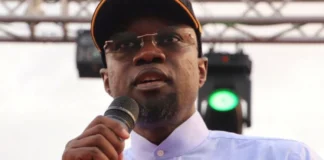Directorate of Criminal Investigations (DCI) boss Mohammed Amin has denied claims that missing blogger and lawyer Ndiangui Kiangui is being held by security agencies, even as the High Court directed police to either produce him in court or provide a credible explanation for his disappearance.
In a combative press briefing, Amin refuted mounting speculation linking the state to Kiangui’s 10-day absence, instead accusing the blogger of evading arrest over a serious online post. According to Amin, investigators traced a social media account that published a June 25 protest timetable to Kiangui.
One entry, Amin claimed, suggested that protesters would march to State House to “watch President Ruto get unalived by hanging” — a phrasing interpreted by authorities as incitement to assassinate the Head of State.
“We are not holding Ndiangui Kiangui. We are looking for him,” Amin said. “Let him present himself to the police and respond to the issues raised about the threatening content traced to him.”
However, hours after the DCI statement, Justice Chacha Mwita issued a habeas corpus order demanding that Inspector General of Police Douglas Kanja produce Kiangui in court or give a “satisfactory explanation” for his whereabouts. The judge described the case as urgent and warned that the unexplained silence from security agencies posed a grave threat to the missing man’s constitutional rights and life.
“This is not just a legal filing; it touches on the life of a Kenyan citizen,” Mwita said. “Ten days is too long for a state that claims to uphold the rule of law.”
The court instructed that all respondents to the application, including the police and intelligence agencies, file their responses by close of business Monday and appear before the court on Tuesday at 11:00 a.m.
Kiangui’s disappearance has sparked national outcry, with civil society organisations warning of a resurgence in enforced disappearances and extrajudicial practices. Human rights groups and family members maintain that his last known whereabouts suggest involvement by state actors.
Tuesday’s proceedings are expected to test the credibility of the state’s position and could have wider implications for how Kenya treats digital activism and dissent.



















